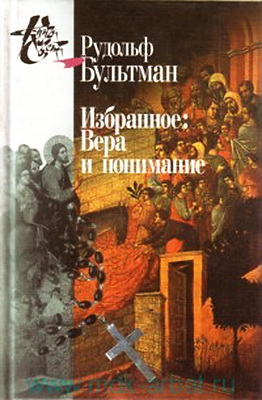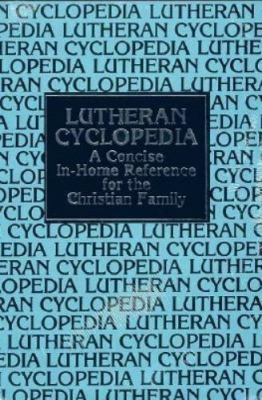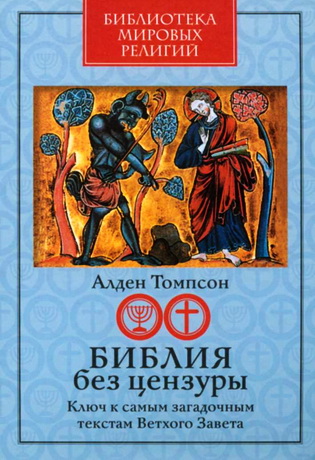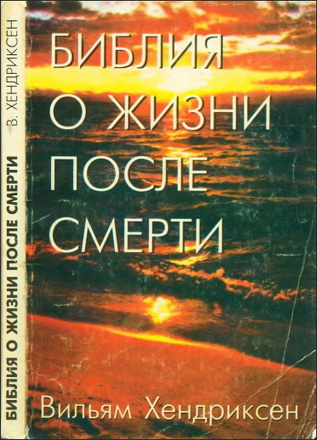
Lueker - Lutheran Cyclopedia - модуль BibleQuote
Erwin L. Lueker - Lutheran Cyclopedia - A Concise In-Home Reference for the Christian Family
St. Louis, Missouri: Concordia Publishing House Ltd., 1954. - Revised edition, 1975. - Electronic Edition, 2000. – 845 p.
ISBN-10: 0570032555
ISBN-13: 978-0570032557
The LUTHERAN CYCLOPEDIA treats important aspects of the thought and life of the church. It includes the following areas: Bible interpretation, systematic theology, church history, life and worship in the church.
With the publication of this work, what was the book LUTHERAN CYCLOPEDIA enters a new era, the electronic text era. In acknowledgement of this change, and of the fact that the LUTHERAN CYCLOPEDIA was always more than just a reference work about Lutheranism, it was felt a name change was in order. Because we belive that this work will be of help to anyone seeking information about the Christian church, its beliefs, and many of its most important personages, therefore the name has been changed to the CHRISTIAN CYCLOPEDIA. While there are some articles dealing with other religions and their most important historical figures, for the most part, this work deals with the Christian faith and its most important personages. Greater depth will be found in its treatment of Lutheranism and Lutheran personages, and most especially with those institutions and historical figures associated with The Lutheran Church-Missouri Synod, than is found for other denominations and their important historical figures.
This work is more than just an electronic version of the 1975 revised edition of the LUTHERAN CYCLOPEDIA. Luther Poellot, one of the major in-house editors associated with the preparation of the 1975 edition, continued to prepare emendations, corrections, and new articles from the time of its publication until 1999. Poellot’s material has been edited by Charles P.
Schaum, who also added and emmended some articles, including some in which he received the assistance of his wife Martha. Additional materials for inclusion or addition were prepared by David R. Maxwell and myself.
While this work cannot claim to bring up to date the 1975 LUTHERAN CYCLOPEDIA, it does improve upon it. Like the LUTHERAN CYCLOPEDIA and its predecessors, it is but another step in the efforts to improve upon its forbears. With the technological advances that this work makes available, the way that users will consult this work has been changed forever for the better.
* * *
Enlightenment
(Ger.Aufklärung).
1. Philos. movement that began toward the end of the Renaissance,* flowered esp. in the 2d half of the 18th c., and began to decay in the 19th c.; its elements were individualistic, rationalistic, and subjective; its goal was independence, also from authority of Biblical revelation; affected every phase of life; marked the beginning of modern secular culture; spread from Eur. to N and SAm.
2. Humanism began and developed in It. in the 15th–16th c. Its influence was temporarily restricted by religious interest aroused by the Reformation but revived and found expression in R. Descartes,*B. Spinoza,*P. Bayle,* and Deism.* In the Fr. Enlightenment upper classes became frivolous and regarded RCm and Protestantism as equally ridiculous. Its leading exponents were the Encyclopedists.* It attacked religious, pol., and soc. traditions and reached its climax in the Fr. Revolution (see France, 2).
3. Ger. Enlightenment was influenced by the Eng. and the Fr. It drew strength from Freemasonry* and the philos. of C. v. Wolff.* Prominent factors in the Ger. movement were the influence of the skeptical Frederick II, C. F. Nicolai’s*Allgemeine Deutsche Bibliothek, and the writings of M. Mendelssohn,*H. S. Reimarus,* and G. E. Lessing.*Theol. became grossly rationalistic. But vulgar features were sloughed off by J. W. v. Goethe* and I. Kant,* who criticized shallowness and led Ger. literature and philos. to their greatest heights. Ger. Enlightenment was followed by an influential philos.idealism.* See also Age of Reason; Secularism; Sweden, Lutheranism in, 3
J. G. Hibben, The Philosophy of the Enlightenment (London, 1910); E. Cassirer, The Philosophy of the Enlightenment, tr. F. C. A. Koelln and J. P. Pettegrove (Princeton, New Jersey, 1951); Das Zeitalter der Aufklärung, ed. W. Philipp, in Klassiker des Protestantismus, VII, ed. C. M. Schröder (Bremen, 1963); H. G. Nicolson, The Age of Reason: The Eighteenth Century, in The Mainstream of the Modern World Series, ed. J. Gunther (New York, 1961).
Nightingale, Florence
(1820–1910). Hospital reformer, philanthropist; “The Lady with the Lamp”; b. Florence, It., of Eng. parents and named after that city; trained at deaconess institute, Kaiserswerth, Ger. (see Deaconesses, 5), then studied the nursing system and management in hosps. of the Sisters of St. Vincent de Paul, Paris; with money raised in recognition of her services in the Crimea 1854–56 she est. the Nightingale Home for training nurses at St. Thomas’s and King’s Coll.Hosps., London. Works include Notes on Nursing.
The Florence Nightingale pledge;
“I solemnly pledge myself before God and in the presence of this essembly to pass my life in purity and to practice my profession faithfully.
“I will abstain from whatever is deleterious and mischievous, and will nott take or knowingly administer any harmful rug. I will do all in my power to maintain and elevate the standard f my profession, and will hold in confidence all pwrsonal metters committed to my keeping and all family affairs coming to my knowledge in the practice of my calling.
“With loyalty will I endeavor to aid the physician in his work and devote myself to the welfare of those committed to my care.”





Комментарии
Пока нет комментариев. Будьте первым!